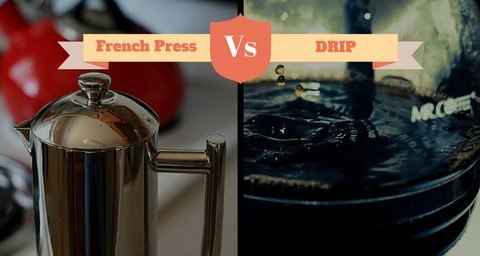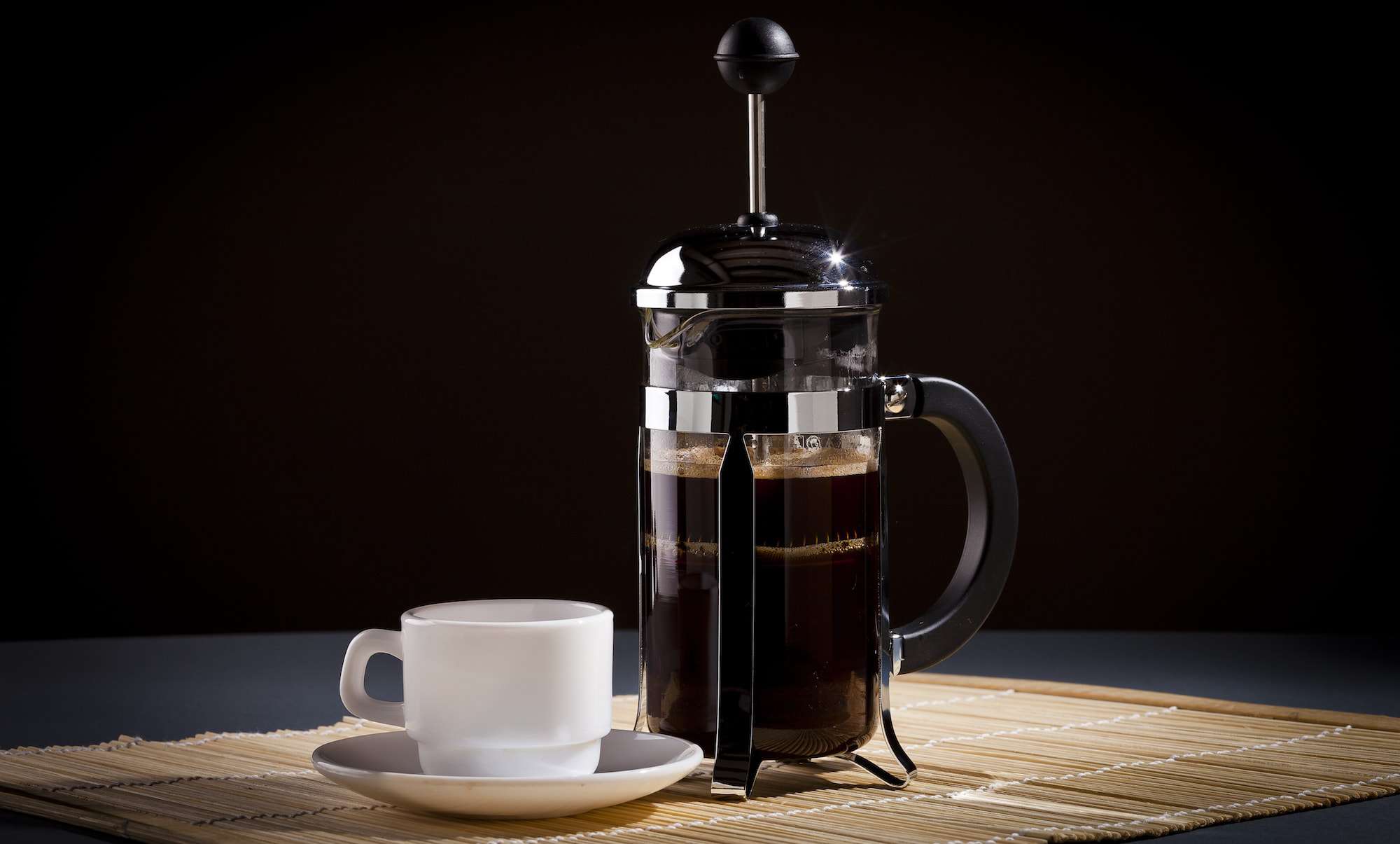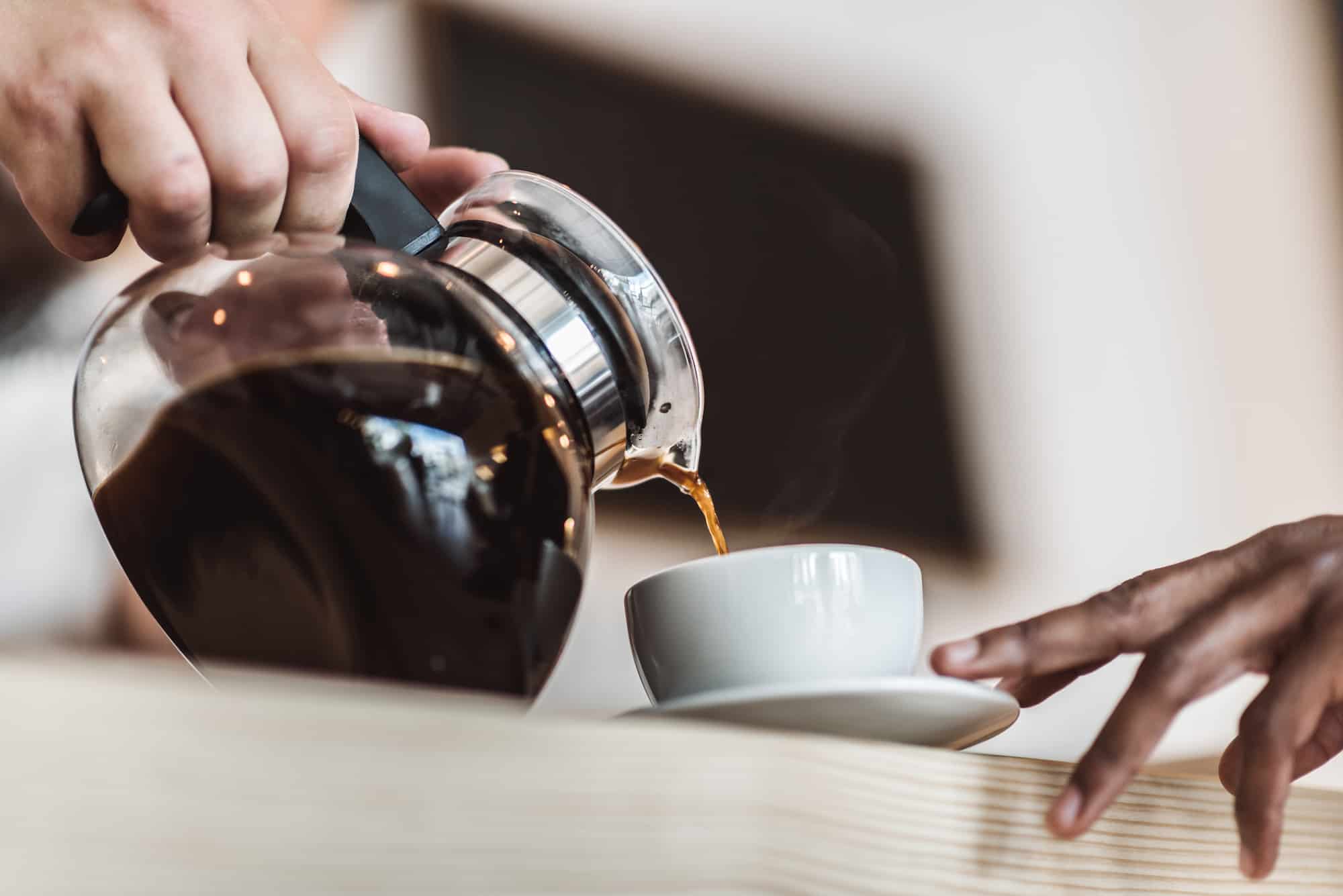French Press vs Drip Coffee Maker: Which One is Better?

It’s no secret that Americans love their coffee.
From espresso to cappuccino to hazelnut and other flavors, coffee-making has become a fine art.
Originally, only the baristas knew how to make a finely flavored cup of coffee, but because of the newest machines sold in department stores everywhere, the average person can brew up a cup of coffee worthy of a king.
Oddly enough, because of the refinements available, there are many different recipes for how to get the very best cup of coffee. One of the biggest controversies that has arisen today is whether or not to use a drip coffee maker or a French press.
Actually, both of these machines are useful in different applications. The difference lies in what type of person you are, what your life habits are, and how you like your coffee to taste.
What is a French Press Coffee Maker?
Although many Americans are familiar with the drip coffeemaker because of brands like Mr. Coffee, there are many who have never seen a French press. This type of coffeemaker is commonly used outside the United States, such as in Great Britain, Italy and other countries.
The French press was first patented by an Italian in 1929. The design went through several changes and then began to catch on all over Europe, and later in America.
Coffee connoisseurs will swear that the French press makes the best cup of coffee. In fact, the CEO of Starbucks made a surprising comment in 2012, saying that the best cup of coffee was one that could be made at home by a simple French press.
This machine is simple indeed. It consists of a glass or stainless steel container with handle, a mesh stainless steel cylindrical piece near the top, and a steel cover with a simple movable plunger. People who are not familiar with the product may confuse it for a teapot or a creamer.
This machine is used by placing the coffee grounds in the bottom of the container, steeping them with hot water, and then pressing down on the plunger slowly. The plunger catches the grounds of coffee so that they do not end up in the final cup.
Advantages of the French Press
The biggest advantage the French Press has to offer is that it allows users to make a cup of coffee according to their own individual taste.
Users can vary the amount of time that coffee grounds are steeped, the type and size of grounds used, the temperature of the water, and other variables.
Most French press users say that it is best to buy coffee beans instead of grounds and grind them yourself, and there seems to be a consensus that coffee should not be ground fine. A fine ground will produce a more bitter cup of coffee.
Another distinct advantage to the French press is that it retains more of the natural oils from the coffee grounds.
Most people agree that the oils are what give the coffee its finest taste. Because a French press does not use a filter as a drip type machine does, the robust natural flavor of the coffee grounds is not filtered out.
One other distinct advantage of the French press that is not often mentioned is its portability. Because the simplified beaker into which the grounds are placed does not have electrical connections, it is small enough to be placed and carried in a hiker’s bag. Water can be heated over a campfire to pour into the press.
Advantages of the Automatic Drip
A French press, for all of its glorious advantages, does have some disadvantages. Brewing a cup of coffee in this machine does take a little extra time.
There are more manual operations involved in brewing with a French press than with an automatic drip machine.
Manual operation must be controlled in a precise way. For instance, most users of the French press will say that water should be heated to 200 degrees Fahrenheit. The plunger must be depressed slowly.
Coffee lovers who just want a good hearty cup of coffee first thing in the morning, when they are still half-asleep, may not want to deal with the extra effort or time needed.
Beginning users of a French press may find that they have to vary their methods of using the press before they can make a cup of coffee that they really like.
For instance, there are some users who do not like the oily feel of the coffee and prefer to filter it at the end. With a drip coffee maker, there is very little thinking involved; just pour in the grounds, press a button and go.
In addition, the French press is most useful for single serve coffee, although larger beakers can be purchased.
Hotels and restaurants in Europe overcome this obstacle by providing individual beakers to each table. Those who like to entertain large groups of people will almost surely want to use a drip coffee maker for the convenience.
People who enjoy flavored coffees, or coffee that is finessed in some way, such as cappuccino, may find the special machines created for that purpose easier to use.
French Press vs Drip: who wins?
When it come down to it, the type of coffee machine you find preferable depends a lot on you, your individual taste, and even your life values. There’s no need to be limited to only one type, either. You may find that you like them both.

